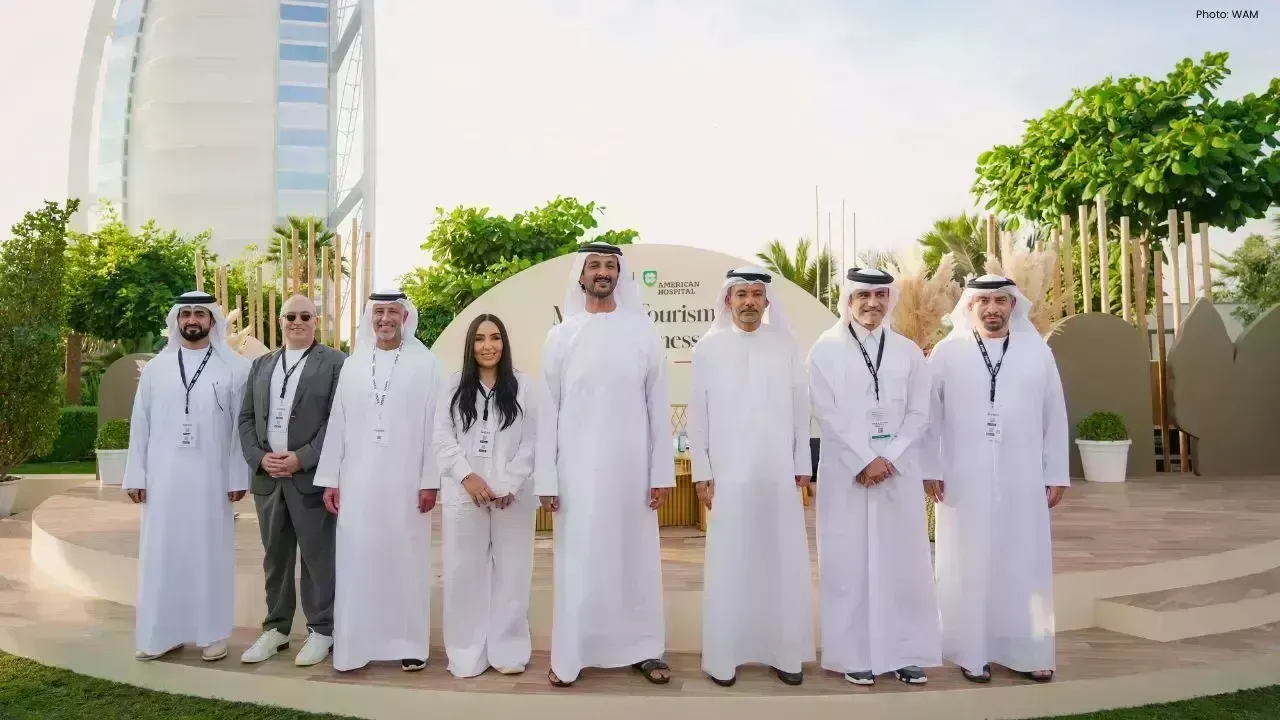
Post by : Priya
Photo:Reuters
Amazon, the global technology and e-commerce giant, has announced a significant expansion of its water sustainability program. The company revealed plans to deploy recycled water systems at more than 120 of its data centers across the United States by 2030. This move marks a major step toward its goal of becoming “water positive,” meaning it will return more water to communities than it consumes. The program highlights Amazon’s commitment to environmental responsibility, efficient resource management, and long-term community partnerships.
A Major Commitment to Sustainability
Data centers, which power Amazon Web Services (AWS), are essential to cloud computing and artificial intelligence operations. However, these facilities require massive amounts of water to cool servers and maintain efficiency. Traditionally, cooling systems have relied heavily on drinking water, adding pressure to local water supplies.
Amazon’s expanded initiative aims to change this. Instead of using potable water, AWS will increasingly rely on treated wastewater—also known as recycled or reclaimed water—for cooling. This strategy significantly reduces reliance on fresh water while still ensuring optimal server performance.
In a statement, Amazon explained that this program would save over 530 million gallons of drinking water annually by 2030. The company also highlighted that it has already achieved 53% progress toward its 2030 water-positive goal, up from 41% in 2023.
How the Recycled Water System Works
Recycled water is wastewater that has undergone treatment to remove harmful contaminants, making it safe for non-drinking purposes such as irrigation and industrial cooling. In Amazon’s case, this treated water will be used in direct evaporative cooling systems inside data centers.
This approach cuts water usage by up to 85% compared to traditional cooling systems. Moreover, in regions where recycled water isn’t readily available, AWS has designed its facilities to switch to air cooling or other sustainable methods to minimize water demand.
Where the Expansion Will Take Place
Currently, AWS uses recycled water at several data centers in Virginia and California. The new plan introduces facilities in Georgia and Mississippi, with many more states to follow. By 2030, over 120 data centers nationwide will operate with this system.
The expansion is not just about quantity but also about building long-term partnerships with local municipalities. AWS works with city governments and water authorities to develop the infrastructure needed to treat and deliver recycled water to its sites. This collaboration helps create sustainable solutions that benefit both the company and surrounding communities.
Water Positive by 2030
Amazon’s water-positive pledge goes beyond simply reducing water usage. The company is investing in water replenishment projects, such as restoring wetlands, improving watershed health, and funding clean water initiatives in drought-affected regions.
By 2030, AWS aims to:
This commitment aligns with other sustainability goals, including reaching net-zero carbon emissions by 2040 and running operations entirely on renewable energy by 2025.
Impact on Communities
Data centers often operate in regions already facing water scarcity. Using drinking water for cooling can strain local supplies, potentially affecting households, farmers, and ecosystems. By switching to recycled water, Amazon ensures that fresh water is preserved for essential community needs.
AWS has also pledged to share data on water usage publicly, allowing communities to monitor its impact. In areas like Northern Virginia, where AWS operates large clusters of data centers, the use of recycled water has already eased pressure on municipal supplies, ensuring sustainable growth for both the company and residents.
Environmental and Economic Benefits
The program offers multiple benefits:
Challenges and Implementation
While ambitious, the initiative faces challenges:
Amazon is addressing these hurdles by working closely with state agencies, local utilities, and environmental groups to ensure smooth implementation.
Industry Implications
Amazon’s move could reshape sustainability practices in the tech sector. Data centers run by Google, Microsoft, Meta, and other cloud providers also face scrutiny over water usage. As competition in artificial intelligence and cloud computing grows, efficient water management becomes a strategic advantage.
Environmental experts believe Amazon’s large-scale adoption of recycled water will push the entire industry toward water-positive operations, much like the earlier shift toward renewable energy.
Global Perspective
Although the current plan focuses on the United States, AWS operates worldwide. The company has hinted at future international expansions of this recycled water program, particularly in regions with high water stress, such as parts of Asia, the Middle East, and Southern Europe.
Global organizations like the World Resources Institute have warned that water scarcity could affect up to half the world’s population by 2030. Initiatives like Amazon’s are crucial for mitigating this crisis.










OpenAI Highlights Growing Cybersecurity Threats from Emerging AI Technologies
OpenAI has raised alarms about the increasing cyber risks from its upcoming AI models, emphasizing s

Manchester City Triumphs 2-1 Against Real Madrid, Alonso Faces Increased Scrutiny
Manchester City secured a 2-1 victory over Real Madrid, raising concerns for coach Xabi Alonso amid

Cristiano Ronaldo Leads Al Nassr to 4-2 Victory Over Al Wahda in Friendly Face-Off
Ronaldo's goal helped Al Nassr secure a 4-2 friendly win over Al Wahda, boosting anticipation for th

Landon Donovan Challenges Australia Coach on World Cup Prospects
Landon Donovan counters Australia coach Tony Popovic’s optimism for the World Cup, expecting an earl

Mercedes-Benz Forms Landmark Partnership with WTA
Mercedes-Benz and the WTA unveil a significant partnership effective January 2026, with major invest

Abhishek Addresses Divorce Rumours Concerning His Family
Abhishek Bachchan confirms that daughter Aaradhya remains oblivious to divorce speculations, focusin